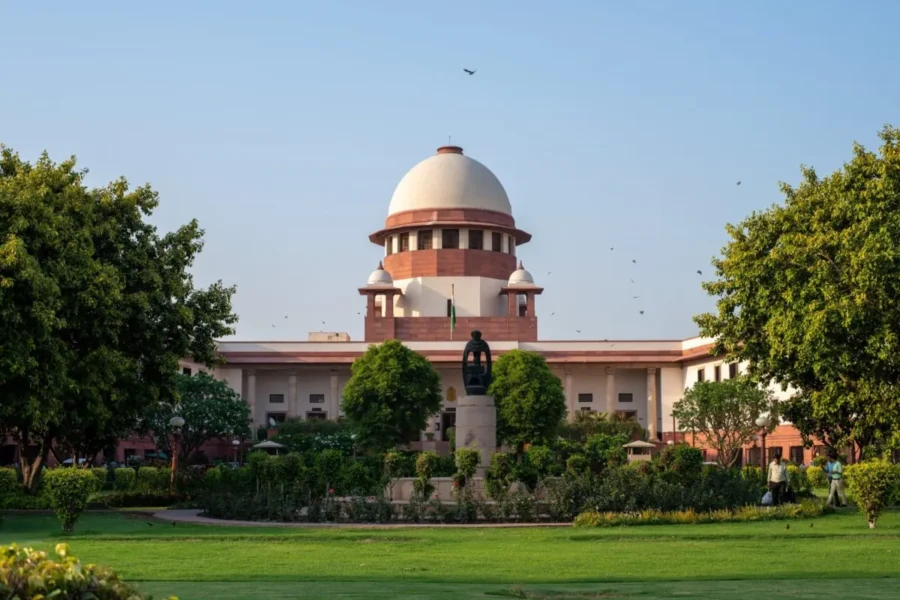Introduction
Welcome to the official blog of the Law Offices of Kr. Vivek Tanwar Advocate and Associates, where we are dedicated to providing litigation support services for matters related to the Rights of Illegitimate Children under Hindu Law. In today’s blog post, we aim to shed light on the prevailing issues surrounding the Rights of Illegitimate Children under Hindu Law, the legal framework in place for their protection, and the steps we can take as a society to combat these acts. Join us as we explore this critical subject and empower you with the knowledge to protect your rights and safety.
On September 1, 2023, a three-judge bench of the Hon’ble Supreme Court of India, led by Chief Justice Dr. Dhananjaya Y Chandrachud, delivered a significant judgment in the case of Revanasiddappa and another versus Mallikarjun and others (2023 SCC OnLine SC 1087). The ruling addressed a long-standing legal conundrum regarding the inheritance rights of illegitimate children whose parents’ marriages are either null and void or voidable under the Hindu Marriage Act, 1955 (HMA). This article delves into the key points and implications of this groundbreaking judgment.
The Core Issue: Inheritance Rights of Illegitimate Children
The central issue in the Revanasiddappa case revolved around the rights of children born out of marriages declared null and void or voidable under the HMA. The question was whether such children could inherit their parents’ property, both self-acquired and ancestral, in a manner akin to legitimate children. Notably, the judgment also examined whether these children could become coparceners in a Hindu Mitakshara Joint Family, a concept integral to Hindu property rights.
Legal Background and the Divergent Views
The legal ambiguity stemmed from conflicting interpretations of Section 16 of the HMA. This section addresses the legitimacy of children born from such marriages. Earlier judgments, notably Jinia Keotin (2003) and Revanasiddappa (2011), had differing perspectives. Jinia Keotin held that children from void or voidable marriages could inherit only self-acquired property, excluding ancestral property. In contrast, Revanasiddappa asserted that these children have an equal claim to both self-acquired and ancestral property. The disagreement necessitated a reference to a larger bench.
Understanding Section 16 of the HMA
Section 16 of the HMA plays a pivotal role in determining the legitimacy of children born from void or voidable marriages. It bestows legitimacy on such children but restricts their rights to the property of their parents. Notably, it does not automatically make them coparceners in a Hindu Mitakshara Joint Family.
The Legislative Intent
The Supreme Court examined the legislative intent behind Section 16, highlighting that it was enacted to prevent the stigmatization of children born from void or voidable marriages. The legislation aimed to protect these children from the label of “illegitimacy.” However, it was also designed to safeguard the rights of other individuals’ property, apart from that of the parents.
Implications of the Judgment
The ruling clarified that children born from void or voidable marriages, whose legitimacy is protected by Section 16, do not become coparceners by birth. Instead, their rights are confined to the property of their parents, and not those of any other individuals.
Understanding Invalid Marriages in Hindu Law
Before delving into the judgment’s implications, it’s crucial to grasp the concept of invalid marriages in Hindu law. These marriages do not meet the legal conditions for a valid Hindu marriage and include void and voidable marriages. Historically, children born from these unions were considered illegitimate, depriving them of any claim to their parents’ ancestral property.
Judgment: In the Case of Revanasiddappa v. Mallikarjun, 2023 SCC OnLine SC 1087, was pronounced on September 1, 2023.
- Section 16 of the Hindu Marriage Act (HMA) confers legitimacy upon children from null and void marriages, irrespective of birth timing.
- Sub-section (1) of Section 16 grants legitimacy even if a decree of nullity is granted for the marriage.
- Sub-section (2) applies to voidable marriages annulled by a decree of nullity, deeming children born before the annulment as legitimate.
- However, sub-section (3) of Section 16 specifies that the rights of such children are limited to their parents’ property.
- This legitimacy under Section 16 is considered for succession purposes under Section 3(1)(j) of the Hindu Succession Act (HSA).
- Section 6 of the HSA recognizes the institution of a joint Hindu family, with equal rights for daughters after an amendment in 2005.
- Section 6(3) of the HSA introduces a legal fiction regarding the devolution of interest in coparcenary property.
- The interest of a deceased Hindu Mitakshara coparcener is determined by assuming a notional partition before their death.
- Heirs, including children legitimized under Section 16 of the HMA, are entitled to their share based on this notional partition.
- Section 16(3) of the HMA clarifies that legitimacy under Section 16 doesn’t grant rights to the property of any person other than the parents.
Conclusion
In conclusion, the 2023 Supreme Court judgment is a significant step toward a more inclusive and equitable interpretation of Hindu law in contemporary India. While it brings much-needed clarity, it also underscores the importance of legal education and awareness to ensure these rights are effectively asserted and protected. This decision signifies a progressive approach to law and a commitment to safeguarding the rights of vulnerable individuals, particularly children, in the realm of inheritance.
We are a law firm in the name and style of Law Offices of Kr. Vivek Tanwar Advocate and Associates at Gurugram and Rewari. We are providing litigation support services for matters related to the Rights of Illegitimate Children under Hindu Law.

